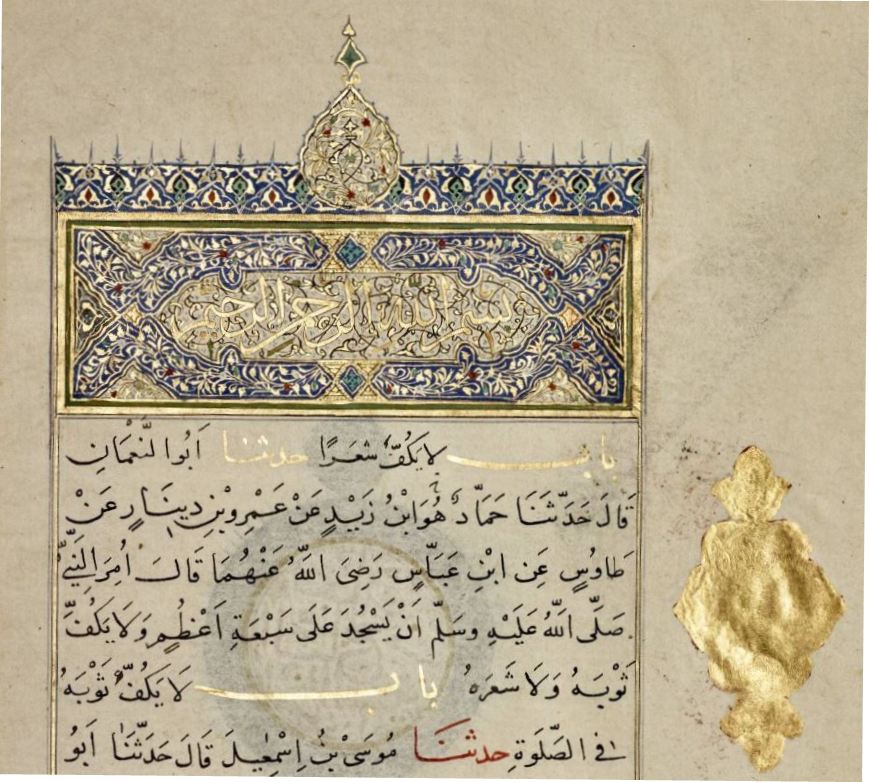
It is worth noting that these scholars simply infringe their own rules, when beset by practical challenges that are too strong for those regulations to address.
TO GIVE AN EXAMPLE, jurists have legitimised taxes, customs, and other financial obligations imposed by the modern state, despite the existence of religious texts that expressly forbid them, and they thus bypass the rule that these texts establish, that: “There can be no ijtihad regarding a text of scripture,” and there are many more similar prohibitions.
One of the axioms the collective Muslim mind has been forced to act upon is to consider the hadith of the Prophet as something complementary to the Qur’an, or even as an extension of it, even though there are many Texts that clearly forbid such a thing, such as the Qur’anic verse: “Say, I am only a human being like you to whom it has been revealed,” or the hadiths of the Prophet, whose authenticity is agreed upon according to the rules of hadith scholarship, such as the Prophet’s saying:
I am only a human being, and litigants with cases of dispute come to me, and someone of you may happen to be more eloquent (in presenting his case) than the other, whereby I may consider that he is truthful and pass a judgment in his favour. [1]
Or:
I am but a human being. When I issue any command to you regarding your religion, accept it; but when I issue any command to you based on my own opinion, I am merely a human being.[2]
Or:
I am only a human being like you, forgetting just as you do; so when I forget remind me. [3]
The Prophet himself actually clearly forbade his hadiths to be written down, and denounced that, saying:
Do not write on my behalf, and whoever writes on my behalf other than the Qur’an, let him erase it. [4]
In yet another hadith he expressed his anger when he learned that some of his companions had begun to write down his sayings:
“A book other than the Book of God? Do not write what I say; the book of God is the only one to be recorded or written”, he said. “So we collected what we had written down on one sheet and then burned it with fire![5]
While it is recognized that the texts of the Qur’an did not change with time since their revelation, there are dozens of indications confirming that the hadith of the Prophet are not to be considered as authoritative as the Qur’an. Among the reasons was that these hadith were written down nearly two centuries after the death of the Prophet, and were based on the memory of far later generations of narrators, and that the books of the Prophet’s hadith include in their pages hundreds of texts that contradict both the Qur’an and common sense, with many even including material that denigrates the Prophet. There are many also whose contents indicate that they were recorded in a specific context – the status of the Prophet as head of the first centralized state that arose in the Arabian Peninsula. Moreover, none of the hadith books contain any sermons of the Prophet, despite the fact that no fewer than 500 sermons were delivered by him at the Friday prayers or feast days in his capacity as imam of the Muslims in their prayers!
Accordingly, and on the basis that the Qur’an and the Prophet’s hadith constitute the two main sources of religious lore for the Muslim, it is vital to radically reconsider – as an imperative – the methodology of Qur’anic interpretation and the authenticity of the Prophet’s hadith. Failing this it will not be possible to address the issue of religious reform, which we consider the cornerstone of any programme aimed at advancing the Islamic and Arab states.

Suggested Reading
For this is the surest way to achieve the aspirations to a renaissance, to restore Islamic societies to an active participation in the progress of human civilization, and to overcome the state of backwardness that casts a dark shadow over the Islamic world ever since the doors of change-inducing ijtihad were closed shut by al-Ghazali, Ibn Taymiyya and others. The surest path we can see is that of a religious reform, and one that stems from the religion itself.
The general political situation in contemporary Islamic societies, along with the statements of senior Muslim leaders such as the Saudi Crown Prince, the President of Egypt and others, demonstrate that there is an urgent, essential need to review the intellectual system that is affecting the mind and conscience of the Muslim individual. With this in mind, we see that the opportunity is now there, more than ever before, for modernising thinkers to address the issue of the desired religious reform, and to establish a new jurisprudence that is compatible with the current level of progress that has been attained by human civilization.
[1] Sahih al-Bukhari, 7181. The hadith continues: “If ever I pass a judgment in favor of somebody whereby he takes a Muslim’s right unjustly, then whatever he takes is nothing but a piece of Fire, and it is up to him to take or leave.”
[2] Mishkat al-Masabih, 147
[3] Mishkat al-Masabih, 1016
[4] Sunan al-Darimi, 464. This hadith caused much controversy, and the version given by Sahih Muslim, 3004 runs: “He should efface that and narrate from me, for there is no harm in it and he who attributed any falsehood to me (and Hammam said: I think he also said: ‘deliberately’) he should in fact find his abode in the Hell-Fire.” The hadith scholars explain the apparent contradiction by referring to al-Nawawi’s explanation of Shahid Muslim, that “among the Salaf – the Companions and Tabi’in – there arose a difference concerning writing them down. Many of them disliked it, but most of them permitted it. Then there was a consensus of the Muslims who permitted it, and the dispute thereby ceased”. (Ed.)
[5] Musnad Ahmad, 11092.
Main image: The ḥadīth considered as a text ranking with Qur’anic scripture: a muṣḥaf-like page from the Ṣaḥīḥ al-Bukhārī with gold illumination. The passages calligraphically inscribed are Ḥadīths 815 and 816 from chapter كتاب الأذان : “The Prophet was ordered to prostrate on seven bony parts and not to tuck up his clothes or hair” (when performing ṣalāh). Unknown artist, Shiraz, dated 1400-1450. From the Keir Collection of Islamic Art, Object number K.1.2014.800.1.
Read Part 1 of this essay here
